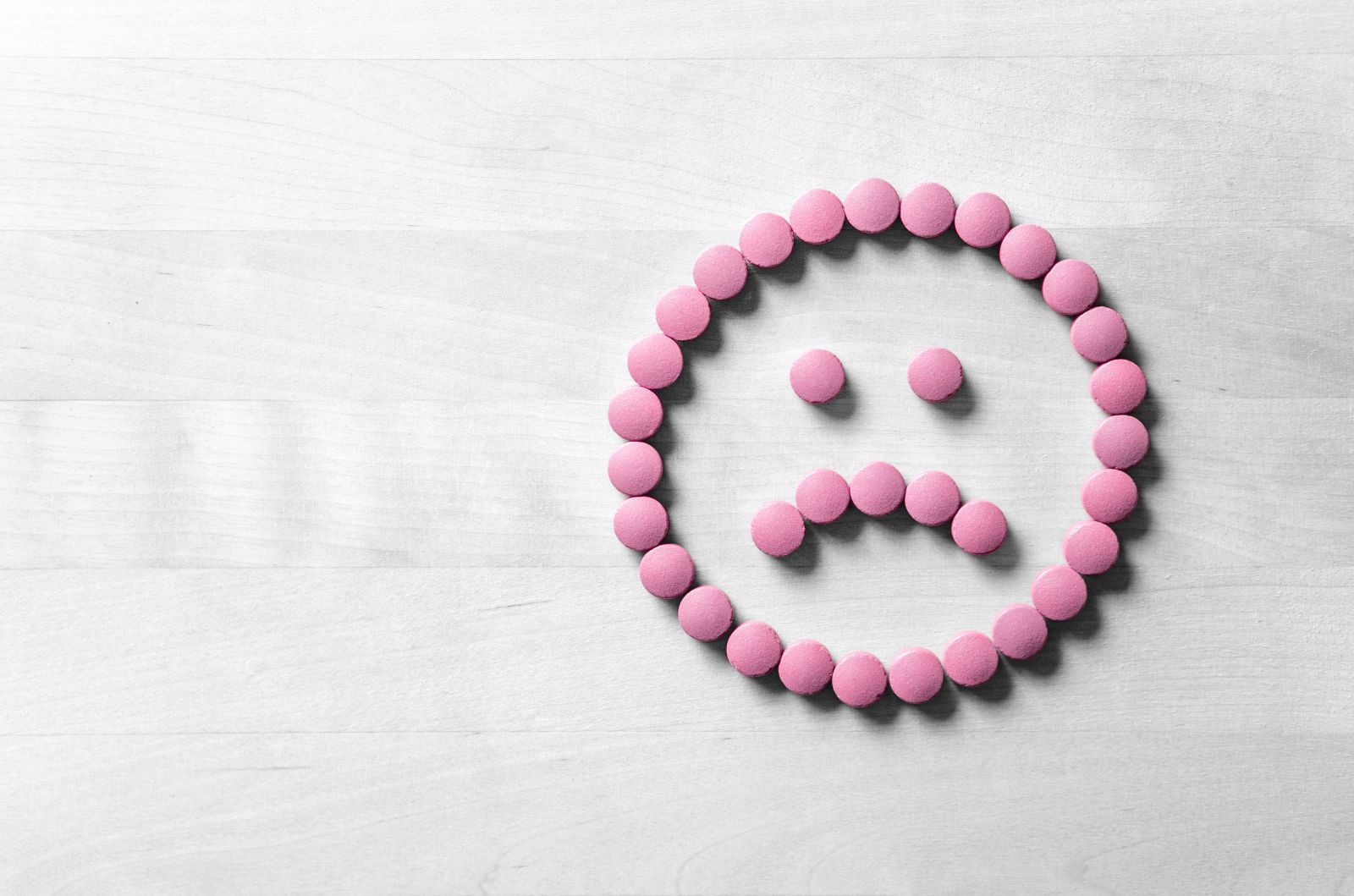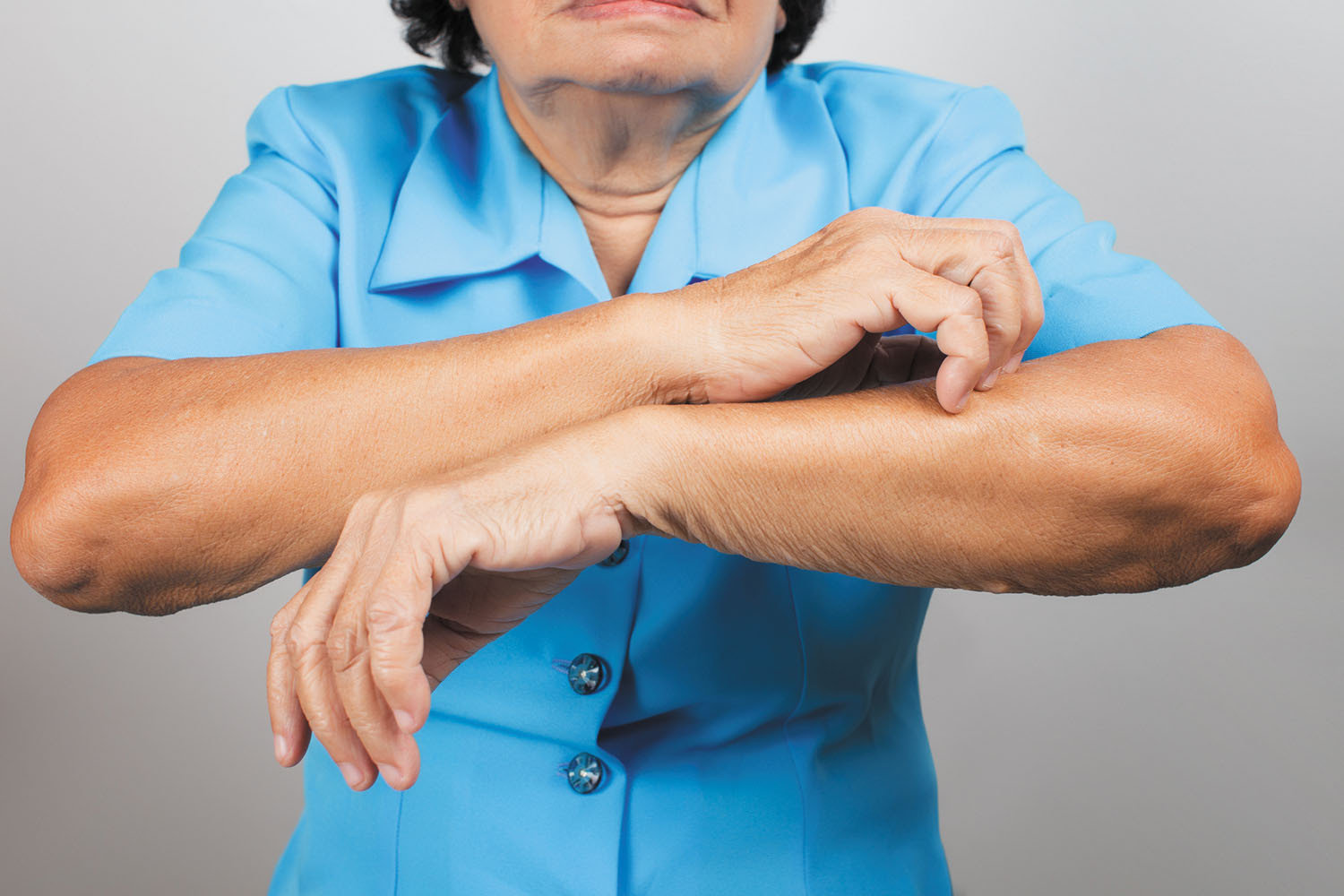
5 timeless habits for better health

What are the symptoms of prostate cancer?

Is your breakfast cereal healthy?

When pain signals an emergency: Symptoms you should never ignore

Does exercise give you energy?

Acupuncture for pain relief: How it works and what to expect

How to avoid jet lag: Tips for staying alert when you travel

Biofeedback therapy: How it works and how it can help relieve pain

Best vitamins and minerals for energy

Should you take probiotics with antibiotics?
Controlling Your Blood Pressure Archive
Articles
Taming stubbornly high blood pressure
Are you sabotaging your heart health without realizing it?
Image: © izusek/Getty Images
As many as one in seven people being treated for high blood pressure doesn't have the condition under control, according to a recent scientific statement from the American Heart Association. The problem — known as resistant hypertension — is defined as having high blood pressure despite taking three or more blood pressure medications, including a diuretic.
For most people, high blood pressure means a reading of 130/80 millimeters of mercury (mm Hg) or higher. Staying below that threshold can dramatically lower a person's odds of having a stroke or heart attack. That's why it's so important to address the barriers that prevent people from reaching their blood pressure targets, says Dr. Randall Zusman, a cardiologist at Harvard-affiliated Massachusetts General Hospital.
Why has my sense of taste changed?
On call
Image: © Meinzahn/Getty Images
Q. I have lost some of my sense of taste. I take medicine for high blood pressure. Could that be the reason?
A. The ability to enjoy food's flavor requires both your sense of taste and your sense of smell, which are triggered by the stimulation of nerve endings in the mouth and nose. As we age, our senses of smell and taste diminish. We lose taste buds, and those that remain shrink; and our tongue and nose become less discerning.
In vitro babies: Risk of high blood pressure in later life?
Research we're watching
Image: © PhonlamaiPhoto/Getty Images
A small study found that babies conceived using assisted reproductive technology (ART) may be more likely to have high blood pressure as teenagers than those conceived naturally.
Close to 2% of babies born in the United States are conceived using ART, most commonly by in vitro fertilization, in which sperm and egg are mixed in a lab dish. In 2012, researchers found that healthy kids born via ART were more likely than their peers to have signs of premature aging of their blood vessels.
Blood pressure treatment might protect your brain
Research we're watching
Image: © mixetto/Getty Images
Aggressively treating high blood pressure might help ward off cognitive changes, according to findings presented at the Alzheimer's Association International Conference in July. Researchers from the Systolic Blood Pressure Intervention Trial compared two strategies to manage high blood pressure in more than 9,300 older adults (average age about 68). One strategy aims to achieve the standard treatment level for high systolic blood pressure (the first number in a blood pressure reading), keeping it under 140 mm Hg. The more aggressive strategy sets a goal of less than 120 mm Hg. The aggressive strategy reduced not only heart risks, but seemed to protect the brain.
People in the more aggressively controlled blood pressure group were 19% less likely than those in the standard treatment group to develop new cases of mild cognitive impairment (often a forerunner to dementia). They were also 15% less likely to develop any form of dementia or mild cognitive impairment. This study provides another reason to work with your doctor to reduce high blood pressure.
Depression risks in the medicine cabinet
News briefs
Are you taking a medication that has depression or suicidal thinking as a potential side effect? One or both risks have been linked to use of more than 200 prescription and over-the-counter pills, including medicines that treat high blood pressure, heartburn, pain, and headaches. The more of these drugs you use, the higher the likelihood that you'll experience depression, suggests a study published June 12, 2018, in The Journal of the American Medical Association. Working with five surveys conducted over a nine-year period, researchers evaluated health information from 26,192 adults. About 37% of them reported taking such medications. Of individuals taking three or more of the medications with depression as a possible side effect, about 15% reported depression, compared with about 5% in people not using those medications. Even for people already taking an antidepressant, the addition of one or more of the identified medicines was linked to higher rates of depression. This study was based on surveys, so it didn't prove that the medications caused the reported depression. Nonetheless, if you think you're depressed (and have symptoms such as apathy, hopelessness, changes in sleep or eating habits, and persistent fatigue), ask your doctor if any of the medicines you are taking may be responsible.
Image: © Tero Vesalainen | GettyImages
Virtual visits and high blood pressure
News briefs
If your doctor offers a way to monitor your chronic health condition via computer, consider giving it a try. A Harvard study that was published online April 23, 2018, by the Journal of General Internal Medicine found that people who had "virtual" office visits over the Internet were able to control their blood pressure just as well as people who had in-person follow-up office visits — and they used fewer health care services over all. Researchers compared the health outcomes of two groups. One group included about 900 people with high blood pressure who had in-office follow-up visits. The other group included about 900 people who had "virtual" follow-up visits, which meant they used a website to enter blood pressure readings, track their medications and side effects, and ask questions; their doctors determined whether to follow up by computer or phone or to schedule in an in-office visit. Over the course of six months, blood pressures improved for people in both groups. But people in the virtual care group averaged about one fewer office visit than people in the other group, and they had fewer emergency room visits and hospitalizations over all. The authors say the results support using virtual follow-up visits for other chronic diseases. Indeed, many health care providers already are doing so, including one group in the study — Massachusetts General Hospital, which uses virtual care to follow 65 different kinds of chronic disease.
Image: © AndreyPopov | GettyImages
Eczema may signal higher risk of cardiovascular problems
Research we're watching
Image: © Tharakorn/Getty Images
About one in 10 people has eczema, a chronic inflammatory condition that leaves skin dry and itchy. People with more severe forms may experience a scaly rash or skin that cracks and oozes. These people may also be at greater risk for heart attack and stroke, according to a study in the May 23 issue of The BMJ.
For the study, researchers analyzed data from more than 385,000 adults with eczema, which was classified as mild, moderate, or severe. Each was matched with up to five people of similar age and sex who didn't have eczema.
Aldosterone overload: An overlooked cause of high blood pressure?
This hormone, which helps the body manage water and sodium, is a focus of growing interest among researchers.
High blood pressure — which has no symptoms or warning signs — can harm your blood vessels, heart, brain, eyes, and kidneys. An estimated 46% of adults in the United States have this stealth condition. A combination of unhealthy habits, such as smoking, a poor diet, and lack of exercise, can contribute to a rise in blood pressure. While kidney disease may cause high blood pressure, for most people the underlying cause is unknown.
However, for about one of every 15 people with high blood pressure, an imbalance of the hormone aldosterone may be to blame. This problem may be even more common among people with poorly controlled high blood pressure (also called resistant hypertension). "Among those people, up to one in five may have too much aldosterone," says Dr. Gail Adler, chief of cardiovascular endocrinology at Harvard-affiliated Brigham and Women's Hospital.
The benefits of do-it-yourself blood pressure monitoring
Sharing readings from a home monitor with your physician may help you reach your blood pressure goal more quickly.
Image: © Bojan89/Getty Images
For treating certain health problems, finding the best drug or combination of drugs at the correct dose often requires some trial and error. High blood pressure is a good example. Because this common problem raises heart attack and stroke risk, the sooner you can get your blood pressure down to a healthy range (130/80 millimeters of mercury [mm Hg] or lower), the better. New research suggests that people could speed things up a bit by taking a more active role in the process (see "Tracking your blood pressure at home: Does it help?").
"The study showed that a period of home blood pressure monitoring — one week per month — was sufficient to guide people to better blood pressure control," says Dr. Paul Conlin, professor of medicine at Harvard Medical School and chief, Medical Service, at the VA Boston Healthcare System.
Vegetable of the month: Peppers
Image: © Josef Mohyla/Getty Images
Peppers, which belong to the genus Capsicum, come in a variety of colors, shapes, sizes, and flavors. Bell peppers (available in green, yellow, orange, red, and even purple) make a nice addition to a salad or plate of crudités. Supermarkets carry bags of assorted mini bell peppers that are convenient both for snacking and using in recipes.
While sweet bell peppers are crunchy and mild, hot peppers — such as jalapeños, serranos, and habaneros — provide a tongue-tingling punch of heat. They contain varying amounts of the phytochemicals responsible for the spiciness in hot peppers.

5 timeless habits for better health

What are the symptoms of prostate cancer?

Is your breakfast cereal healthy?

When pain signals an emergency: Symptoms you should never ignore

Does exercise give you energy?

Acupuncture for pain relief: How it works and what to expect

How to avoid jet lag: Tips for staying alert when you travel

Biofeedback therapy: How it works and how it can help relieve pain

Best vitamins and minerals for energy

Should you take probiotics with antibiotics?
Free Healthbeat Signup
Get the latest in health news delivered to your inbox!
Sign Up











